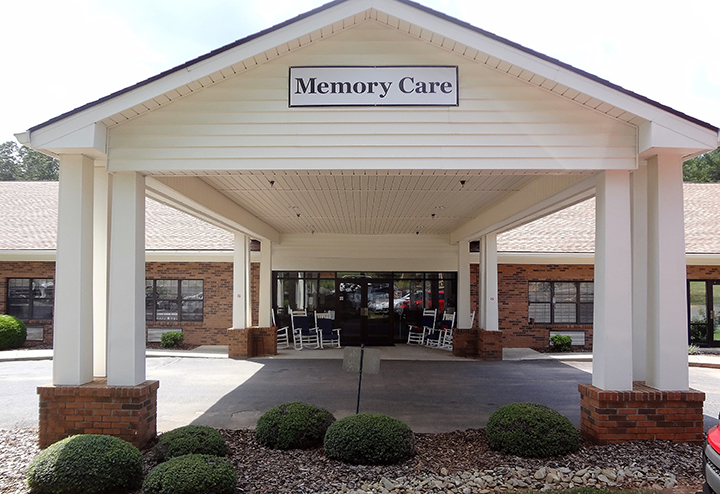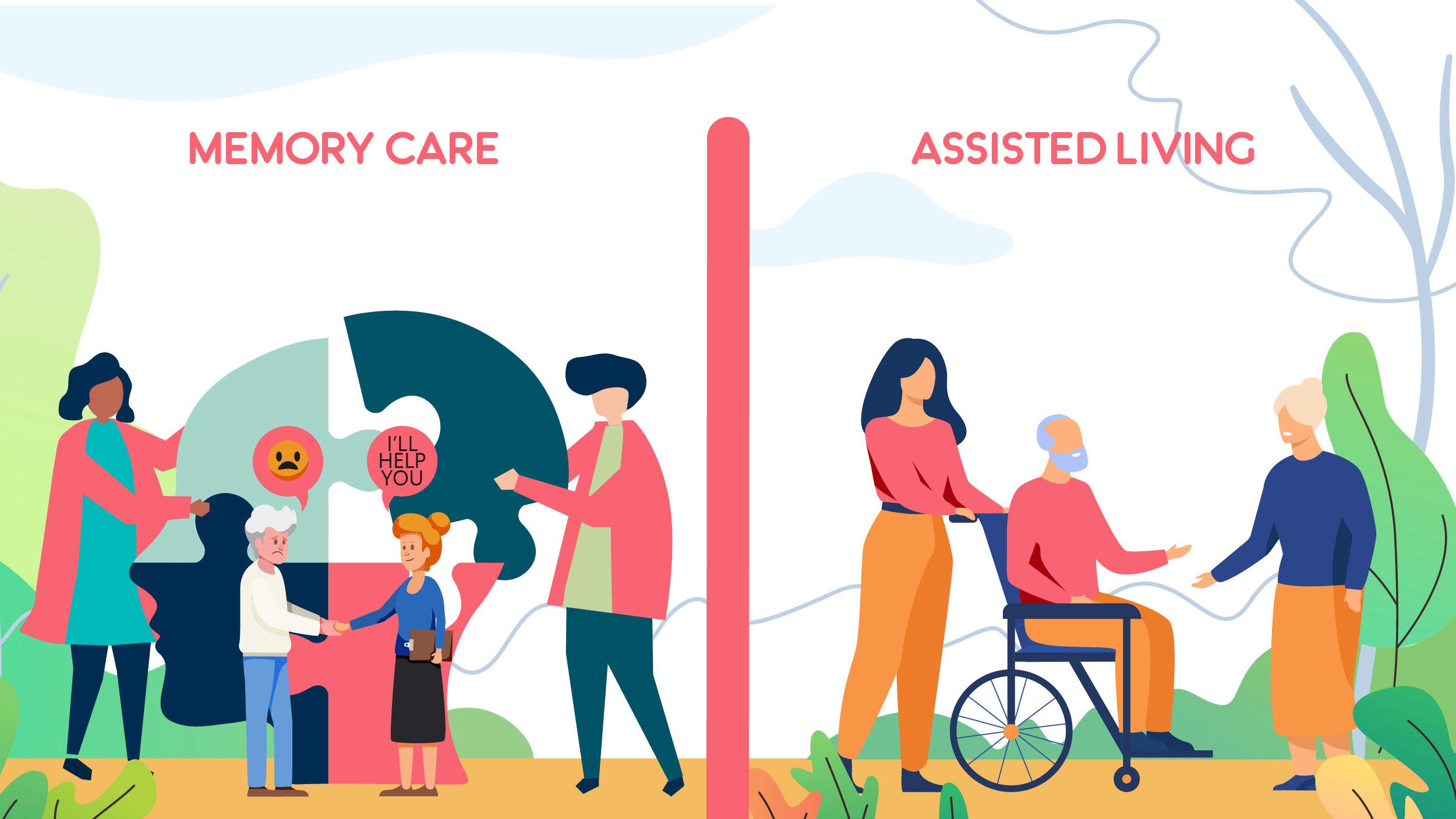Comprehensive Family Members Aid Readily Available with Alzheimers Care Charlotte
Comprehensive Family Members Aid Readily Available with Alzheimers Care Charlotte
Blog Article
Developing a Safe and Supportive Setting for Alzheimer's Care
The production of a secure and helpful environment for people with Alzheimer's is extremely important in improving their quality of life. Discovering these complex methods can expose important understandings into efficient caregiving approaches that may transform the daily experiences of both caretakers and individuals.
Understanding Alzheimer's Demands
Often, individuals with Alzheimer's disease show a series of demands that need tailored methods to care. As the problem progresses, cognitive decrease manifests in various methods, affecting memory, thinking, and even the capability to do day-to-day tasks. Caretakers must identify these progressing demands to offer appropriate support and guarantee a better of life for those affected.
One vital element of recognizing Alzheimer's requirements is acknowledging the relevance of regular and familiarity. People often find comfort in well-known patterns, which can minimize anxiousness and complication. Caretakers need to strive to develop structured day-to-day schedules that integrate purposeful activities straightened with the individual's abilities and passions.
Furthermore, efficient communication is critical. People with Alzheimer's might struggle to express themselves or comprehend intricate language. Caretakers must use basic, clear language, use non-verbal signs, and practice energetic paying attention to foster understanding and connection.
Last but not least, emotional and social demands can not be forgotten. Supplying possibilities for social interaction and preserving connections can substantially improve emotional wellness. Caretakers need to urge engagement in community tasks or family events, promoting a sense of belonging and objective. Comprehending these varied demands is necessary for producing a supportive treatment setting.
Creating a Safe Home
Creating a secure home for individuals with Alzheimer's illness is vital to lessening threats and promoting self-reliance. Guarantee that paths are clear and well-lit, as appropriate illumination lowers disorientation and boosts mobility.
Incorporating flexible features is additionally important. Install grab bars in restrooms and near stairs, and take into consideration using non-slip mats in wet areas. Furthermore, using contrasting colors for floors and wall surfaces can help in differentiating rooms, aiding to minimize complication.
Knowledge is necessary for individuals with Alzheimer's. Customizing the atmosphere with acquainted objects and pictures can reinforce a sense of belonging and protection - Alzheimers Care Charlotte. It is also helpful to have actually an assigned area for day-to-day activities, such as reading or crafting, which can offer framework to their day
Finally, implementing a safe and secure exterior area enables for secure expedition while attaching with nature. By thoughtfully making the home atmosphere, caregivers can considerably improve the quality of life for people living with Alzheimer's disease.
Enhancing Interaction Abilities

Non-verbal interaction, consisting of face expressions, motions, and touch, plays a crucial role in conveying empathy and understanding. Keeping eye call and a tranquil temperament can enhance the comfort level of the individual, promoting a sense of safety and security.
In addition, it is necessary to practice active listening. This involves being totally present, revealing persistence, and allowing the person to share themselves without disturbance. Repetition might be required; caretakers should be prepared to take another look at subjects or concerns, as individuals with Alzheimer's may battle with memory recall.
In addition, using aesthetic aids or signs, such as photographs or acquainted items, can facilitate acknowledgment and involvement. Ultimately, boosting interaction skills has to do with developing trust and developing an environment where people feel listened to, valued, and recognized, thereby enriching their lifestyle.
Urging Social Interaction
Promoting meaningful social communications can greatly improve the health of people with Alzheimer's disease. Engaging with others not only helps battle feelings of isolation but likewise promotes cognitive feature and emotional health and wellness. Structured social activities, such as group arts, crafts and games, or music therapy, produce chances for citizens to get in touch with peers and caretakers, which can bring about enhanced state of mind and reduced anxiety.
Producing a welcoming advice setting that encourages socializing is important. This can be achieved by organizing public areas that promote interaction, such as cozy seating locations or task spaces. Furthermore, incorporating acquainted and culturally pertinent activities can urge and stimulate memories engagement, allowing individuals with Alzheimer's to feel more connected to their previous experiences.
Moreover, caretakers should be trained to identify and promote social interaction among locals. Simple motions, such as launching conversation or facilitating tiny group conversations, can help individuals feel valued and included. Consistently set up gatherings must be constant yet versatile, suiting varying levels of capacity and rate of interest. By focusing on social interaction, we can significantly enhance the lives of those living with Alzheimer's, fostering a feeling of area and belonging.
Sustaining Caretaker Health

To support caregivers, companies need to supply normal training and educational resources to boost their understanding of Alzheimer's illness and caregiving methods. Giving access to break treatment services allows caregivers to take required breaks, decreasing stress and anxiety and tiredness - Alzheimers Care Charlotte. In addition, cultivating a community with assistance groups can promote emotional sharing and the exchange of practical suggestions amongst caretakers, producing a network of shared support
Psychological health resources, such as therapy solutions, can additionally be essential in addressing the emotional toll caregiving can take. By focusing on caretaker well-being, we produce a more lasting caregiving environment that not just profits the best site caretakers themselves yet likewise improves the overall top quality of treatment received by individuals with Alzheimer's. Eventually, sustaining caretakers is a crucial component in fostering a caring and reliable care setting.
Conclusion
In verdict, the development of a secure and helpful atmosphere for individuals with Alzheimer's is essential to boosting their lifestyle. By prioritizing safety through thoughtful design, fostering emotional health with familiar aspects, and promoting involvement through structured regimens, caregivers can dramatically influence the total experience of those affected by this problem. Sustaining caretaker well-being is important, as it inevitably contributes to an extra caring and efficient care setting.
Repeating may be necessary; caretakers must be prepared to revisit topics or questions, as people with Alzheimer's might battle with memory recall.

Report this page